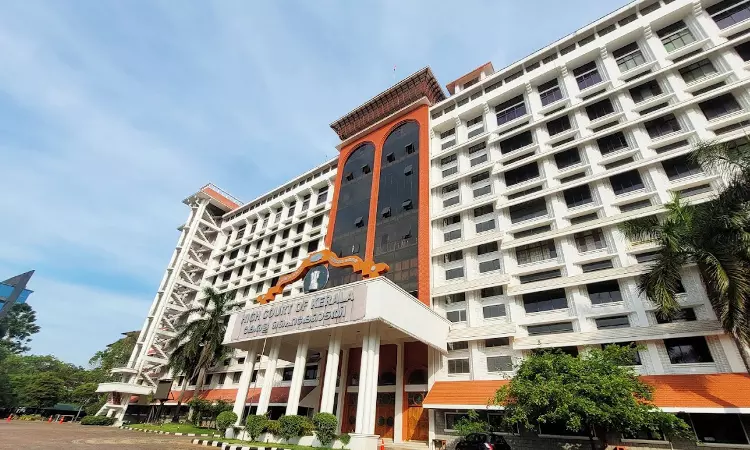- Home
- /
- High Courts
- /
- Kerala High Court
- /
- KVAT Act | Input-Tax Credit Can Be...
KVAT Act | Input-Tax Credit Can Be Availed If Purchaser Has Genuine Invoices Even If Seller Fails To Remit Tax: Kerala High Court
Mehak Dhiman
28 July 2025 4:40 PM IST
The Kerala High Court, overruling its earlier decision in C.P. Rasheed v. State of Kerala, has held that input tax credit can be availed under the Kerala Value Added Tax Act, 2003 if the purchaser has genuine tax invoices even if the seller fails to remit tax.The bench opined that “the input tax credit can be legitimately availed by the purchasing dealer under the Kerala Value Added...
The Kerala High Court, overruling its earlier decision in C.P. Rasheed v. State of Kerala, has held that input tax credit can be availed under the Kerala Value Added Tax Act, 2003 if the purchaser has genuine tax invoices even if the seller fails to remit tax.
The bench opined that “the input tax credit can be legitimately availed by the purchasing dealer under the Kerala Value Added Tax Act, 2003, even in cases where the selling dealer failed to remit the tax due to the government, provided that the purchasing dealer has strictly complied with all statutory requirements including possession of genuine tax invoices as required under the statute.”
Justices Devan Ramachandran, Gopinath P. and Mohammed Nias C.P. was addressing the issue of whether a purchasing dealer, who has otherwise complied with all statutory requirements, can legitimately be denied the benefit of input tax credit solely on the ground that the selling dealer failed to remit the tax collected.
A writ petition [W.P(C) No.6733/2019] was filed against the assessment order of the Sales Tax Officer denying ITC to the assessee/petitioner on the ground that the seller had not remitted the requisite tax as under the Kerala Value Added Tax Act, 2003 (“KVAT”).
The Single Judge after considering the view of the Division Bench of Kerala High Court in C.P. Rasheed v. State of Kerala [OT Rev. No. 104/2015, decided on 10.08.2018], found that the same runs contrary to the view of the Division Bench of the Delhi High Court in On Quest Merchandising India Pvt. Ltd. v. Government of NCT of Delhi (W.P.(C) 6093/2017), and directed that the matter be placed before a Division Bench to consider whether the matter needs to be placed before a Full bench.
The registered dealers under the provisions of the KVAT Act, had approached Kerala High Court by way of writ petitions challenging the denial of input tax credit on certain purchases made from registered selling dealers who, though having issued proper tax invoices and collected the tax component from the assessee, subsequently failed to deposit the said tax amounts with the government treasury.
The Division Bench before whom the matters were placed noted that the bench in C.P. Rasheed (Supra) did not consider “tax paid or payable” in the definition of Input Tax Credit under S.2(xxiii). Moreover, the recovery methods available to the state under S. 31 and S.35 of the KVAT Act were also overlooked by the Bench in C.P. Rasheed (Supra). Accordingly, the Division Bench referred the matter to the Full Bench.
The assessee's case is that denying input tax credit to compliant purchasing dealers due to selling dealers' subsequent defaults would subvert the VAT system's objective of preventing cascading taxation. Such denial would effectively impose double taxation by making purchasers bear tax burdens already paid to defaulting sellers, contrary to the basic principles of value-added taxation, while placing an unreasonable compliance burden on dealers.
The bench opined that the decision in C.P. Rasheed (supra) cannot be sustained as it ignored the statutory definition of "input tax", which speaks of "paid or payable," erroneously linking ITC eligibility to the seller's remittance. The judgment also failed to consider the enforcement mechanisms available under Sections 31 and 35 of the KVAT Act, which allow the State to recover unpaid taxes directly from defaulting sellers.
The bench further stated that “…… under C.P. Rasheed (supra), even a bona fide purchaser, who has paid tax against genuine transactions, is denied input tax credit merely because the seller has defaulted in payment, which violates Article 14 of the Constitution. Despite both purchasers having complied with statutory obligations, only the latter is denied credit. Such a distinction is not based on any rational or intelligible differentia and imposes an impossible burden on purchasers to monitor the compliance behaviour of their sellers.”
The bench held that the responsibility for recovering unpaid tax lies properly and primarily with the tax authorities, who must proceed against the defaulting seller, rather than against the innocent purchasing dealer who has fulfilled all obligations imposed by the Act.
In view of the above, the bench overruled the judgment passed in C.P. Rasheed v. State of Kerala.
Case Title: S.P. Faizal v. State of Kerala
Case Number: ICR (OT.REV) NO. 3 OF 2025
Citation: 2025 LiveLaw (Ker) 464
Counsel for Petitioner/Assessee: R. Jaikrishna and C.S. Arun Shankar



